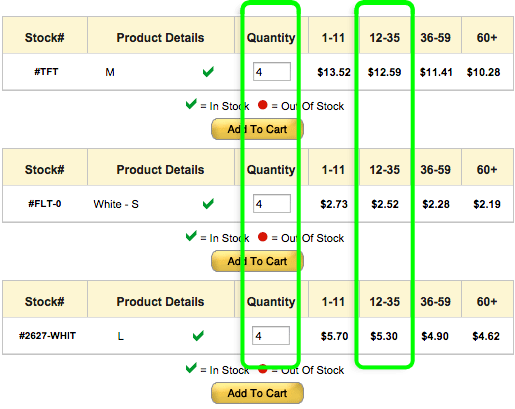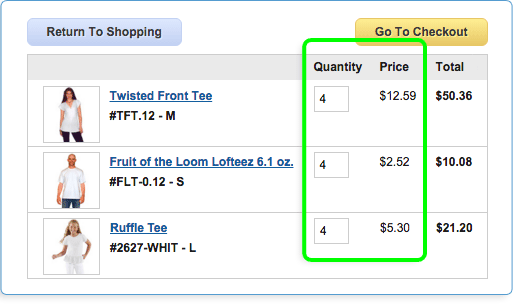
Making Art on Fabric/Paper in the Dark - Jacquard Cyanotype Kit Tutorial
a Dharma featured tutorial
Create an image on your computer or choose a great picture of an event or person/animal/pet/anything you want to use. Try to choose a photo where it will have plenty of contrast. Clean photos are best.
Then upload it to Jacquard’s Negative Generator here. Try out several photos in the generator to see what comes out best. You can also use objects like leaves/rocks/keys, use your imagination. Plan ahead, as mixing the solution takes a day, and drying the fabric takes a day, so on day three is when you can do the printing. And, guess what, check the weather to make sure the sun is going to be out! Or get a UV light to expose it if no sun is available.
Shopping list:
- Jacquard Cyanotype Starter Set
- Gloves
- Foam Brushes
- Fabric item to decorate or printmaking paper
- Masking Tape
- Cup large enough for the foam brushes and liquid cyanotype
- Small measuring cup to measure solutions
- Spoon, plastic is ok to stir the solution
- Large craft table or table covered with plastic
- T-shirt platen, cardboard to put between fabric if you are doing a t-shirt or similar clothing item, so the liquid doesn’t mess up the back.
- Clear plexiglass to hold photos down flat and in place if slightly windy
- Items used in this tutorial: SSCT, FLASS-0, and TEAT
- Jacquard SolarFast Film (the best material to print a negative on!)
- Dark room to dry the paper or fabric after applying with the Cyanotype Sensitizer. Several items can be sensitized (dried) then stored in a cool place out of moisture and light.
- Hydrogen Peroxide (Optional)
- UV light (like the Everbeam pictured) or mid-day sun
- Bucket and sink to rinse out fabrics
- Place to hang finished pieces to dry
Let's get started!



First, unwrap the Cyanotype liquids from the packaging, fill each bottle with water (distilled just in case your water is hard) and shake. Leave for 24 hours.
Prewash your fabrics with textile detergent.

Prepare the photo you would like to use, scan it or take a picture with your phone or camera then upload it to Jacquard's Negative Generator. Play around with the contrast to get it with the most detail, dark and light areas. Click the Negative/Positive button when done and print onto the Solar Fast Film with an inkjet printer. Make sure you print on the sticky side. The kit will do a lot of prints so prepare a few things like fern fronds, objects, toys and a few pictures you would like to do. The kit can do about 60-65 8.5"x11" prints depending on the size fabric you are doing. Pre-wash any fabric items you would like to use with textile detergent and hot water, dry, then iron to make a smooth surface to paint the sensitizer on.

If you are doing clothing and you want a sharper edge to your design, use the masking tape to make a squared off border on your shirt or fabric, big enough for the negative you are going to use. You can also do this for anything you want a border for. This area will be where you are going to put the sensitizer. No rules say you have to use it though, a free border is fine too. Stretch your fabric over a flat surface, or use the t-shirt platen or similar object to stretch the fabric on. Tape it on the back side to hold the fabric tight in the front so that your surface is smooth to paint on.


After the 24 hours it’s time to prepare the liquids, and paint the fabric/paper. In a low lit room pour the same amounts of bottle A and B into another cup, stir with a spoon. Make sure you make enough sensitizer for the projects that you will do within 2 hours. Paint it completely on the fabric or paper you are preparing, but be very careful. The masking tape is just a guide not a resist. It will not stop the flow of the sensitizer. Do not apply heavily, but do cover the area completely. Remember do not do this in a natural light room or fluorescent lighted room, turn off the lights and do it away from the windows so they do not get exposed before you are ready. After painting, lay flat in a completely dark room to air dry. If you hang them the sensitizer might move with gravity.




When the fabric or paper is completely dry with the sensitizer on it, take the items to a very low lit room, put your artwork on top of the fabric and put plexiglass on top to hold it down flat to the fabric. Once the artwork has been applied, move them out to a table in the sun or hook up your UV light. Expose time can vary anywhere from 1 to 30 minutes. In our case, 15 minutes under UV light wasn’t enough. You will know your project is ready when you see the painted area change to a bronze color. Tip: Over exposure is much better than under exposure.



Wash out your piece in a bucket with cool water, changing the water every few minutes until the water is clear. This step is just water, no soap. If you want to speed up the result you can then immerse the fabric in a dilute hydrogen peroxide solution, rinse it out, then hang to dry. The peroxide method is not required but it will help the color change faster otherwise you can just hang it to dry and the change of color will just be slower. Hang to dry out of direct sunlight.



Pro tip: Practice, practice practice!
Applying the cyanotype, patience during exposure, and patience to make sure the sensitizer is dry are key. Make sure you are putting your negative or objects on the painted side of your piece.
Altering the final color of your print: Cyanotype is a bit of a science. Experiment with these household products: Vinegar, soda ash or even Green Tea! See this.
Wear it Proudly! After all Miguel, that's your great Grandpa!












